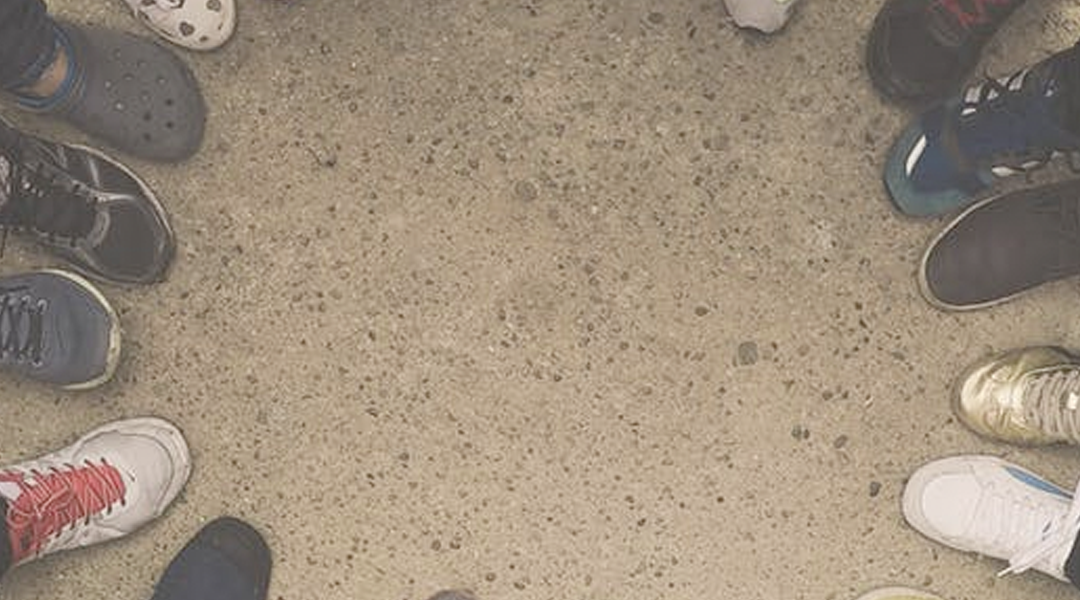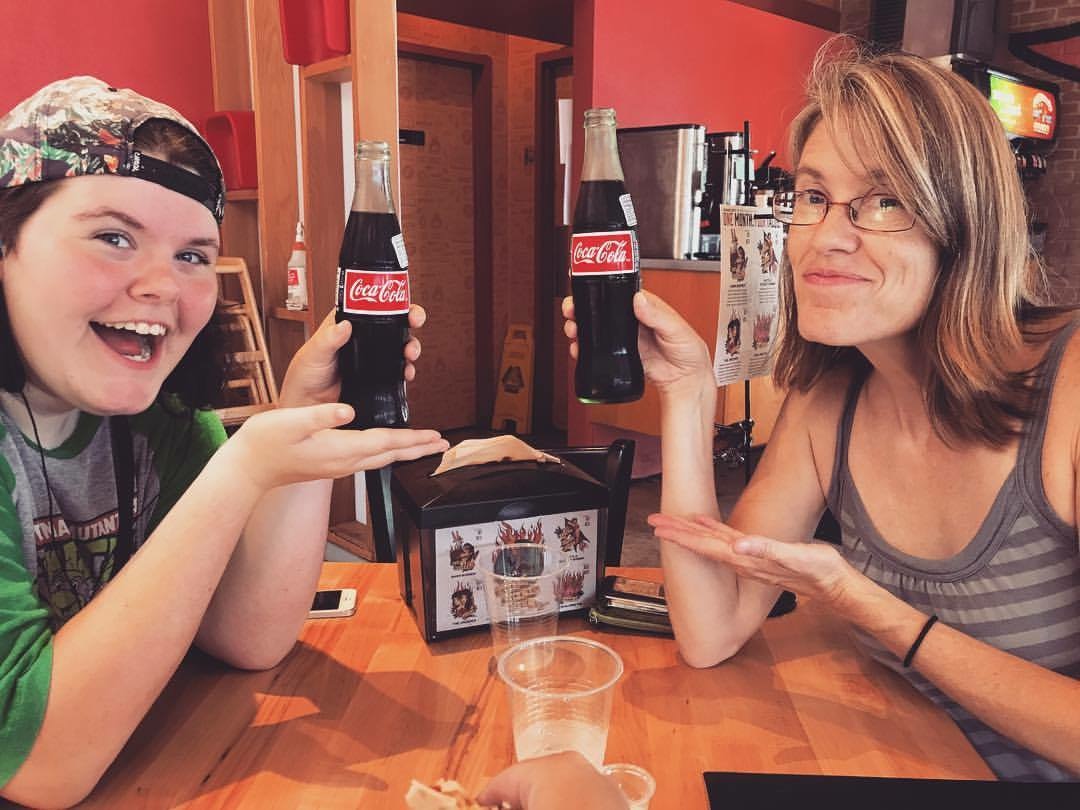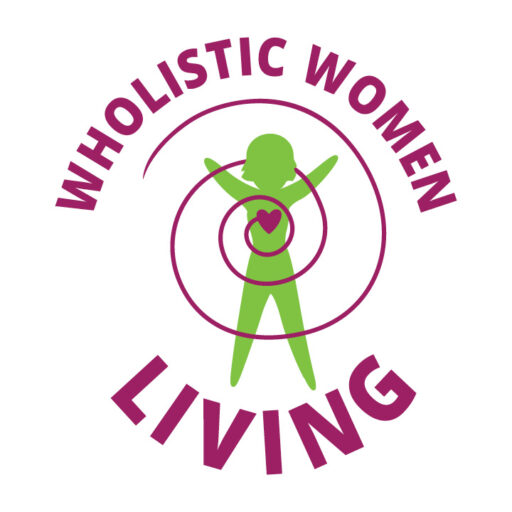
by Kat Middleton | Mar 26, 2019 | Change, Personal Development, Self-Care
As an Occupational Therapy Professional, one of the many things we do every day is to help people with their activities of daily living. Things like grooming, bathing, and dressing.
In the upcoming BE WASHED Event, as your Evening Coach, I will be helping you in another activity of daily living…the area of your thinking.
Imagine if you will, that voice that sometimes sits on your shoulder. Is it whispering words of TRUTH and LOVE or FEAR and LIES?
We will begin the evening retreat by exploring the book, Girl; Wash Your Face by Rachel Hollis. Here, we will learn to STOP believing the lies about who we are so we can HONOR and become who we were meant to be our true authentic selves.
Have you ever found yourself saying things like “I’ll start that diet tomorrow.” Then several pounds up on the scale you hear yourself repeating those same words weeks later? Me too! I can’t tell you the number of times I have started my diet tomorrow, Monday, or the first of the New Year. Or how about…I’m going to take that spin class at the Y, or I’ll start walking around the block every day from now on.
WELLLLLLLLLLLL Lies, all lies we tell ourselves. We like to talk about all the things we are going to do, learn about the things we are going to do, but somehow, we never get around to DOING all the things we say we are going to do. Ugh! Can anyone out there relate?
Many of us can. The Be Washed event will expose more of the most common lies we tell ourselves and offer new strategies to help us be honest with ourselves about what we are blowing off.
The second half of the event we will be taking a look at the book Change your Mind, and Your Life Will Follow by Karen Casey. Her book showcases 12 principles that guide us towards LOVE. Who out there doesn’t need more of that?
Thirty years ago Karen Casey wandered into a support group and learned there was only one thing she could change—herself! The result of this change was so profound she dedicated much of her life to teaching others about it.
I, like Karen, believe if we change our minds, our lives WILL follow. I want to use the opportunity I have as an Occupational Therapy Professional and a Coach to help others grow in this area of thought. Let’s face it; it truly is an activity of daily living.
Let’s think better, do better and feel better. What do you say?
Hope to see you there!
About today’s author: Kat Middleton is an Empowerment Coach who is passionate about her work and advocates for authentic wholehearted living both personally and professionally. She is a Certified Professional Coach and Occupational Therapy Practitioner who loves working with people holistically; helping others to help themselves see things through new filters. Kat joined the Wholistic Woman community in September of 2017. She is very excited to learn, grow, and have much fun with this AMAZING group of women. Kat is available for private one-on-one coaching as well as group workshops, seminars, and speaking events.

by LauraH | Mar 6, 2019 | Personal Development
feedback noun
Feed · back | \ ˈfēd-ˌbak\
Definition of feedback
1a: the transmission of evaluative or corrective information about an action, event, or process to the original or controlling source
I am currently reading Brené Brown‘s latest book, Dare to Lead, for the second time, and I am in the section where she is talking about feedback and the two sides of it…giving and receiving.
This got me thinking about myself and where I am in regards to how I give and receive both positive and negative feedback.
What I know is true for me, and I believe is true for most of us, is that positive feedback is easier all the way around. There are a couple of things thought that I think we should watch out for when it comes to positive feedback.
First, I think sometimes we just don’t take the time to give it. We assume people know they are doing a good job and that we appreciate them. I admit I am guilty of this at times. If you’re like me in this situation, I encourage you to make a point to express your gratitude and appreciation to others. Every time I do this, I know both parties involved walk away feeling better then we had the moment before. It feels awesome to be either on the receiving or giving end of positive feedback.
The other struggle I see with positive feedback, however, happens on the receiving side. So many of us are uncomfortable being praised so we downplay it or brush it aside. Again, I admit I struggle with this and over the past several years have been practicing saying thank you and receiving positive feedback with gratitude and grace.
Negative feedback is another story.…both the receiving and the giving make me extremely uncomfortable! So, this is what I want to focus on today.
One of the things I love about Brené Brown’s work is that she looks for ways to make it teachable. In one of her earlier books, Daring Greatly, she developed a 10 step feedback readiness checklist. The checklist looks like this…
I know I’m ready to give feedback when:
- I’m ready to sit next to you rather than across from you.
- I’m willing to put the problem in front of us rather than between us (or sliding it toward you).
- I’m ready to listen, ask questions, and accept that I may not fully understand the issues.
- I’m ready to acknowledge what you do well instead of just picking apart your mistakes.
- I recognize your strengths and how you can use them to address your challenges.
- I can hold you accountable without shaming or blaming.
- I’m open to owning my part.
- I can genuinely thank someone for their efforts rather than just criticizing them for their failings.
- I can talk about how resolving these challenges will lead to growth and opportunity.
- I can model the vulnerability and openness that I expect to see from you.
Don’t you just love this! It’s a tool you can sit down with and run through prior to what might feel like a difficult conversation. I’ve been working with this since I first came across it in 2012 and it has been a game changer.
In daring greatly, it was this sentence that stood out to me: “We have to be able to take feedback – regardless of how it’s delivered – and apply it productively. We have to do this for a simple reason: mastery requires feedback. I don’t care what we’re trying to master – and whether we are trying to develop greatness or proficiency – it always requires feedback.“
I want you to pause for a moment and think about a time you received hard to hear feedback… How was it delivered?… how did you receive it?
I know for me before I began my homework on self-discovery and self-reflection, my default tendency was to become defensive and to use blame as a form of offloading. I would feel the discomfort of the situation and instead of being able to sit in the discomfort and to really listen to the feedback, I would immediately start explaining why I had acted in the manner I had. I would also look for reasons to justify my behavior. When I looked at these reasons closely I was able to see my behavior as what it was… blaming someone else. When I saw this video I immediately saw myself in it…Take a moment to look at this video and you’ll see exactly what I’m talking about. This could be me talking…
This is not who I want to be! I want to be someone who can receive feedback, regardless of how it delivered, with open-mindedness. So, the big question is how do we do this?
For me, it boils down to how I am feeling about my own self-worth. When I am feeling enough, I am able to listen without my ego getting in the way. I want to be better every day, and feedback is a way to make that happen. When my self worth is intact I am able to take the information in without labeling it as good or bad and mindfully decide which pieces of the feedback are going to help me become a better version of me. Some days I’m better at this than others.
Here is what Brené says in Dare to Lead about receiving feedback…
“ Receiving feedback is tricky for several reasons. One, we might be receiving feedback from someone who lacks delivery skills. Two, we might be at the hands of a skilled person, but we don’t know their intentions. Three, unlike when we’re giving feedback and we schedule it and know precisely what we’re going to say or do, when we’re receiving feedback, we can sometimes be taken off guard. Someone calls us into their office, or we pick up the phone and it’s a client, and they say, “Hey, we’re looking at the pitch you all submitted. We think it sucks, and it’s so far off brief, and we can’t believe you think we’re going to spend this much money with you.” And that’s feedback. Does it feel productive? Is it easy to stay open and receptive to it? Not so much after we hear the word sucks.”
Navigating the uncertain waters of feedback is definitely challenging. Here are a couple of strategies to help you…
First, stay aligned with your values and try creating a mantra that can help you in the moment. For example, I value the act of being curious. I think this stems from my strength of learner (according to Gallup’s Strengths Finder Assessment). So when I am on the receiving end of giving feedback, I am often silently repeating to myself… stay curious, stay curious, stay curious over and over as a way to stay connected to my values. Or when I am on the giving end of negative feedback, I practice reminding myself that there will always be things on the other side of the situation that I need to know and staying open and curious is a good way to gather that information.
Second, practice staying present. Take the time to learn what your default tendency is when it comes to offloading discomfort and then practice not implementing that strategy. Some typical strategies are anger, blame, pretending we aren’t uncomfortable, and numbing to name a few.
Do you know what your go-to strategy is?
The bottom line is that negative feedback is a challenge for most of us, but if we want to live a life that allows for expansion and growth, we have to practice both giving and receiving it.
I’d love to hear your thoughts on this topic. What have you learned about feedback? Please share it with me in the comment section.
Today’s author: Laura Hall, CPC, CDWF: As a certified professional coach since 2009, Laura Hall, Certified Daring Way™ Facilitator has been helping people just like you make changes in both their personal and professional lives. Laura can be reached via email at [email protected] or feel free to visit her website HallCoaching.com

by Donna Kettell | Feb 20, 2019 | Personal Development
Have you heard about the current research that states that the practice of multi-tasking is not the best way to get things done?
When I heard this, I initially thought, wow, where would I be without multitasking? Don’t we all take pride in the fact that we can do 10 things at once? And, we are busy, busy, busy, yet juggling it all! I remember in my first job out of college my manager gave me a coffee mug that showed a woman with about 20 arms doing all kinds of things at once, looking completely calm in the process! She and I both enjoyed thinking of ourselves as talented multi-taskers! And, my guess is, you might too!
Recent studies such as the one by scientist, Daniel Kahneman, have shown that the human brain can only focus on a certain amount of information at one time. And, an article in Forbes actually alleges that multitasking damages your brain, lowering your IQ and EQ.
Imagine that you are watching the news while chatting on the phone with a friend, and folding the laundry. That may feel reasonable enough but those tasks are all pretty basic and don’t require a lot of attention. However, what if you were driving a car in a snowstorm, while talking to a distraught teenager, and reciting the alphabet backward? Well, I know that is a bit of an extreme example, but you get the idea! The more critical or challenging the task, the more important that you be present and focus on that one task, versus multitasking.
Until now, I had always viewed multi-tasking as a required skill to get through life productively. However, I’m starting to rethink that and I’m discovering the power of concentrated focus on one thing at a time. In fact, I had the television on in the background as I was writing this blog, and just laughed at loud, realizing that I would probably think more clearly without it!
As I have been paying closer attention to the impact of my multitasking, here are a few discoveries that I have made.
First, it occurred to me that concentrating my focus vs. multi-tasking is similar to the concept of the One Word tool. Many of us have been using the One Word for years and for me, the power of the One Word is in its simplicity of focus. That One Word becomes a priority and we intentionally think about it each day for 365 days, and we see the impact that this focus can make in our lives by the time that the year is over.
Second, I have always loved a good to do list. And, now I have taken that list a step or two further to enhance my focus. I take my long to do list and think about the 2-3 top priorities that must get done today. Then, I think about how long it will take me to tackle each task, and here’s the key – I assign a specific timeframe, to get them done. This has become an impactful step because it helps diffuse the feeling of being overwhelmed. It may be a task I am not excited to dive into, but once I realize that it should only take an hour, I feel more committed to getting it done. Then, I plug that hour into the calendar. If something should take an hour, I might plug it into my 9-10 a.m. timeframe. Then, I set an alarm on my phone for 60 minutes and create a bit of a challenge for myself to get the task done. It may sound silly, but it has really worked for me!
Last, I have discovered that things take less time than you believe it will when you can give it your undivided attention. When I was multitasking, it felt like I was working on the same task or project for weeks at a time. I think that was because it was more difficult to get a whole task off my to-do list, I just chipped away a little at a time by doing so many other things at the same time. When I decide to tackle a task (or part of a project), and put a realistic time frame on it with intense focus, it has been a pleasant surprise to see something that felt overwhelming become very manageable.
I must admit that some days I am more successful with my laser-focused approach than other days. However, the new approach does give me a greater sense of accomplishment, and also tends to be much more energizing than the frequent chaotic feeling of trying to juggle a million things at once!
It may be interesting for you to try a little experiment of your own. See if you find that laser focus is more productive and energizing for you, and you may just keep your brain healthier in the long run!
oday’s blog was written by WWR Partner Coach, Donna Kettell. Donna is a certified professional coach (CPC) and a master practitioner in energy leadership (ELI-MP). Her certifications were earned through The Institute for Professional Excellence in Coaching (iPEC), which is accredited by the International Coaching Federation (ICF).

by Carol deLaski | Jan 16, 2019 | Carol deLaski, Personal Development
A Wholistic Approach to One Word
Are you familiar with the practice of using One Word for the year?
Many find this tool more helpful than New Year’s resolutions which can fall by the wayside within a few weeks or months. The idea is that your One Word guides and teaches you throughout the course of a full year. Based on the easy-to-read book, One Word that will Change your Life, by Gordon, Britton, and Page, the practice is simple yet highly impactful. Now in my 7th year using the One Word practice, I have decided to take a Wholistic approach to the practice. This means I will consider my One Word through the four perspectives of wholeness; heart, mind, body, and spirit.
Allow me to explain this approach using my one word from last year as an example.
My word for 2018 was Beloved and it has taught me a great deal in the past 12 months. I like to reflect on the lessons learned before I move on to another word for the New Year.
Heart: As you might imagine, the word Beloved was relatively easy to experience on a heart level. I paid close attention to the inward and outward dimensions of it. Inward meant noticing what it feels like to be someone’s Beloved; to be the recipient of their love and attention. Outward meant noticing what it feels like to show others that they are Beloved to me. 2018 was a significant year as I married my longtime sweetheart, Greg. I had the opportunity to give and receive love in new ways as I committed the rest of my life to this Beloved man and to our blended families. In addition, the year offered significant lessons as I walked, (and continue to walk) a journey through the diagnosis of a terminal illness with a Beloved brother-in-law and sister. This word taught me anew not to take the people I love for granted. You can read more about these heart lessons in Be Loved, My Beloved.
Mind: When I thought about the word Beloved, I immediately went to the dictionary to learn its official definition. Webster’s tells us that it means ‘dearly loved, or dear to the heart’. No surprise there. I am aware who is dear to my heart, as I imagine you are, too. However, I cannot help but wonder how well I express that ‘dearness’ to those who are Beloved to me. Like many, I often get caught up in the busyness of life and focus on completing the tasks that make up my work and life activities. I believe that what we focus on grows, so when I focus on accomplishing tasks, I must admit that I get a lot done and feel satisfaction from my efforts. However, something is lost when I allow myself to focus solely on my ‘to-do list’. I lose the being part of me. I have learned this year to focus more on being with those I love. I have prioritized quality time with those dear to me and have built a wealth of joyful memories as a result of that prioritization. I still get my work and life tasks done, but there is a better balance now as I try to make sure those who are dear to me know just how much I treasure them.
Body: I was surprised at what I found when I looked at my word Beloved from a physical perspective. Similar to what I learned from the heart and mind dimensions, I noticed that it had to do with taking people for granted. In this case, however, it was my own health and well-being that I took for granted. I tend to assume that my body will function how I need it to each day. It isn’t until I get sick or injure myself that I realize just how precious a healthy body is. I am in awe of the physical design and intricate systems of the human body. I consider my body a gift from my Creator. I see that gift as a Temple and feel a responsibility to maintain my health in optimal condition so that I can be (and do) all that I am called to be and do. Early in 2018, I was motivated to treat my body very well as I prepared for our wedding. During the first half of the year, I was a healthy eater, exercised more than ever before, got plenty of sleep, and generally practiced excellent self-care. After the wedding, however, I took a break from those good habits and I am still trying to get back to them 6 months later. I admit that self-care can be hard for me. I’ve had a lifelong tendency to focus on others more than on myself. According to Gallup’s Strengths Finder, my leadership style is ‘Relationship Building’ and I agree completely. I love people; whether at work or at play I am fascinated by human interactions. This year I added a new tool to my personal development with the Enneagram assessment, an ancient typology of nine interconnected personality types. According to the assessment, I am a 2, which is known as The Helper. It confirmed yet again that I am hardwired to focus on others. I am designed this way. My word Beloved, when focused inward, reminds me to incorporate self-care with the care of others. It is absolutely necessary to take care of my body and health in order to be the giver that I am designed to be.
Spirit: To be honest, I was somewhat uncomfortable when the word Beloved first resonated with me early in 2018. It is not a word that I use in everyday speech, so it felt a bit awkward. My use of it was infrequent and, even then, it was in written form. It is a word that I usually see in my favorite Good Book, so I have thought of it as a spiritual word. I can almost hear God’s voice saying, “This is my Beloved Son, in whom I am well pleased.” It felt like too grand of a word for me. It was a word to describe the Son of God, not Carol Sue. But because the One Word practice comes from God/Spirit I felt compelled to pursue it this past year. I delighted in highlighting Beloved whenever it appeared in my daily devotionals. Unlike my other yearly theme words, this word has not appeared very often in conversations, on posters or coffee mugs or in songs, but it has appeared often in my devotional readings. There has been a wonderful spiritual connection whenever I have read the word Beloved because I can almost hear God saying it…and that brings me joy. I have also been reminded that one of the names for the Holy Spirit is The Helper. This reminder encourages me to trust that there is a Force greater than I which helps those in need. I can relax and not spread myself so thin by quickly swooping in with assistance. I prayerfully ask the Spirit to guide me every day in offering my help. I have learned that spiritually guided help is much more effective and less exhausting in the long run. I use the prayer that I wrote in my book, Lost and Found: Discovering Strength in Love and Faith, each day to orient and ground me:
Dear God, be personal and present with me today; Be my best friend. Help me see how you are guiding and providing for me; Holy Spirit, You lead. Continue to heal my heart swiftly and silently so that I can be all that you created me to be; Make me whole. Amen.
As I ask God to guide me each day, I embrace in a trusting relationship with my Creator. I feel connected and sense when my actions are in alignment with the Spirit.
I share this example of a Wholistic Approach to One Word because I find that it adds a deeper dimension to my yearly word practice. I encourage you to try it as well. If you are new to the One Word practice, I suggest that you read the book mentioned above and find a Stretch Team to discuss your word with throughout the year.
Women in the surrounding Frederick area are invited to join me for an evening retreat about the Wholistic Approach to One Word on January 30th from 5:30-7:30 pm. Click here for more details and registration information.
A second invitation is to join a One Word Coaching Group offered by the Wholistic Coaching Coalition. These small groups are open to women and men and will meet conveniently via Zoom calls in February and March to get you off to a great start with your One Word for 2019. Click here for more details.
Feel free to comment here with your thoughts and questions.
Today’s author: Carol deLaski, PCC, is a strengths-based executive leadership coach who guides individuals and businesses to be their best. For more information about her coaching services, and her book Lost and Found: Discovering Strength in Love and Faith, visit www.caroldelaski.com or email her at [email protected]

by LauraH | Sep 6, 2018 | Change, Laura Hall, Personal Development, Professional Development
Announcing Group Coaching!
Like you, Wholistic Woman Retreats is an organization that is constantly evolving. We are an organization on the grow!
When we began in 2010 we offered full day retreats designed to support women with their personal and professional development. After facilitating a few of these retreats, we heard from our community that they wanted more frequent opportunities to connect, so we launched the monthly ‘Be You’ Evening Retreats. The intention was to create a space for like-minded women in and around the Frederick, MD area to gather on a regular basis. At these enriching programs women take a break from the busyness of life to focus on their own development while connecting with other women-on-the-grow. These monthly retreats have been a big hit and over the years we’ve had the pleasure of watching our community expand as we support one another.
Our leadership team makes a point to listen to all suggestions that come our way. Recently, we’ve heard that many of you who love and support us as an organization are looking for something a little deeper than a 90-minute evening retreat. While you love the take-aways of the ‘Be You’ programs, you often leave wanting more! We think this is awesome, and WE HEAR YOU! It appears to be time for us to GROW AGAIN!
We are happy to announce that our answer to the desire to go deeper is GROUP COACHING!
Some of you may be familiar with the concept of group coaching and others not, so I’d like to describe how it can provide you with an opportunity for more growth.
Group coaching, by definition, is exactly what is sounds like… it is a coach-facilitated group that meets on a regular basis to explore an area of common interest. Groups can be done in a variety of ways… in-person or virtually (via audio and/or video calls). The frequency that a group meets also varies… weekly, bi-monthly, or monthly are typical intervals.
I personally have been both a participant, as well as a coach, in a wide variety of coaching groups and here are some of the reasons I love group coaching – and think you will too!
- COLLECTIVE WISDOM – In every group I have been a part of, I have been amazed at how wise women are! There is something magical that happens when we gather in a safe space to share what we know, as well as to ask for guidance in areas where we want to grow. Whether, I’ve been in the role of participant or leader, I have learned something new from every group I’ve experienced.
- CONNECTION – One of the cornerstones of group coaching is trust and connection. In group coaching settings confidentiality is key and is taken extremely seriously. For the connections to be meaningful, it is vital that all participants feel safe to share. Coaches work diligently to create a safe, non-judgmental, space within a coaching group. Groups work as a unit. All participants go through the work together from start to finish. This cohesiveness builds bonds between people. By the end of your time together as a group you build deep, meaningful connections with your fellow participants.
- MULTIPLE PERSPECTIVES – Oftentimes we get stuck because we don’t know what we don’t know. Group coaching brings people with different perspectives together and this often leads to “Ah-ha” moments and intriguing discussions.
- ACCOUNTABILITY – If you are like me, then you know how powerful making a commitment to a group of people can be. I have found that there is something transformational that happens when I declare a goal publicly. I have always had better success and follow-through with goals I set during my group coaching work than when I go it alone.
- AFFORDABILITY – One of the practical aspects of group coaching is that it is less expensive than 1:1 coaching. While it is a shared learning and growing environment it doesn’t mean that everyone is working on the same goals. In fact, you will be setting your unique goals just like you would in a 1:1 coaching experience. You will receive individual attention within the group community.
- IT’S MORE FUN! – Group coaching sessions are something that most participants look forward to. It is fun to get together with other people who are in similar situations or who are creating forward momentum in their careers and lives.
While these benefits are great, the main reason we are offering group coaching is to explore and apply topics in greater depth than we can in one night. Imagine what it would be like to put Wholistic Woman tools and strategies into practice and refine them over 2-3 months with an experienced coach and a group of supportive women. How awesome would that be?!
Today’s author: Laura Hall, CPC, CDWF: As a certified professional coach since 2009, Laura Hall, Certified Daring Way™ Facilitator has been helping people just like you make changes in. As a mother of 2 girls, Laura has a special interest in coaching parents, so if you still have children living at home, ask Laura about her Wholehearted Parenting programs. Laura can be reached via email at [email protected] or feel free to visit her website HallCoaching.com

by Carol deLaski | Mar 16, 2018 | Courage, Guest Blogging, Personal Development
Today’s guest blogger is Wholistic Woman Retreats member Tiffany Richardson. Tiffany is a 2018 scholarship recipient and writes about her life experiences and how she came to find our 2018 Be Creative retreat. Welcome, Tiffany! We are so happy you found our community!
Earlier this year, someone told me about Wholistic Woman Retreats and how they meet once a month during dinner time. We talked about it briefly and then the topic was never brought up again.
However, I was so interested in learning more about it that I Googled it and found the website. As I was scrolling down to look for future retreats, the words “Be Creative” caught my eye.
You see, I used to be so creative. I wrote many short stories and I shared them with family and friends who enjoyed reading them. I told hundreds of stories using sign language in front of an audience who kept asking for more. I even sang songs in ASL at my Deaf church. I was in theatre arts at my church, at my college, and once for a community theatre company in Houston, Texas. I used to draw all the time.
All of that stopped almost 25 years ago. Why?
My mind was blocked. I couldn’t get it to open up. I did attend a couple of those “Paint with Wine” events, but I wasn’t painting with my own creativity or my own ideas. I was painting by following the instructor’s steps and all of the six ladies who were there had the same image as the one I painted. It wasn’t unique as if it had come from my own creative juices. It’s like coloring a picture that has numbers to indicate which color that specific spot had to be.
So what happened 25 years ago? I went into full survival mode without realizing it or even knowing that specific term. I was in an abusive marriage with a man who was a classic narcissist. I mean, if I were to read an article about what a narcissist abuser is usually like, I would find myself nodding because the characteristics matched.
When our daughter was only eight weeks old, I called the police because my husband was threatening to kill me that night and he was so angry that his whole body shook with both hands shaking too. I knew that my baby and I weren’t safe there – we never were – but that night he couldn’t control himself. I left him without looking back.
However, he did almost everything in his power to try to destroy me and to take custody of our daughter. He harassed me to no end for ten long years after I left him.
My daughter is now 18 years old. We haven’t seen him or heard from him for eight years now. I took care of her by working two full-time jobs when I first left him. I realized I couldn’t afford to keep the roof over our heads, so I took on a third job, but it was only part time teaching ASL at a community college two nights a week. I lived paycheck to paycheck for 18 years. I struggled to keep my head above the water.
There were times when we had to live with strangers because the other option would be to go to a homeless shelter. We used to get our food from the food bank or use food stamps.
But we finally got an apartment of our own in 2012, with just the two of us. I’ve managed to stay afloat since then. I used the food bank for the first three years since moving to that apartment.
By 2015, things started to look better for us. I still am living paycheck to paycheck, I still struggle, but I do see hope because I’m still recovering and yes, it is taking a long time for me to heal.
I remember when I saw a video of a strong Deaf woman teaching self-defense to Deaf women all over the world. I asked her if she would travel to our city. In my email to her, I wrote that I wanted to learn self-defense because I was a victim of domestic violence.
Know what she said?
“Tiffany, you are not a victim anymore. You are a survivor!”
That was so empowering for me. I saw myself in a new light.
Being a victim is so dark for me, so when I was finally able to say “I am a survivor,” things began to look brighter. With that said, I don’t want to be a victim anymore. I don’t want to be in survival mode anymore. I want to thrive and live to my fullest potential, whatever that is.
This is why I was interested in Wholistic Woman Retreats and I want to go to ALL of the events!
When I saw the Be Creative event I told myself, “This is it! This is how I will start my journey of shifting from my survival mode to my new way of living by thriving!”
I was getting so excited as I read the description of the event. I searched for the “register now” button and when I did, I was dismayed to see the price. I really wanted to go, so I searched to see if there were anything like a scholarship.
Of course, when I saw that there was one, I was overjoyed and I applied right away.
I don’t really remember everything that I said in the application, but I do remember saying that I understood or thought that for a woman to be wholistic, she would need to grow and develop some kind of harmony with her heart, mind, spirit, and body, and that it is a process that will require time, patience, practice, and lots of support from other women. I wanted to do that and I also wanted to thrive!
Thank you so much for giving me the opportunity to attend the “Be Creative” retreat!
Since the retreat, I’ve been drawing, writing, and even dreaming again. I am so grateful for this wonderful opportunity to participate the retreat with you all!
Page 5 of 11« First«...34567...10...»Last »






